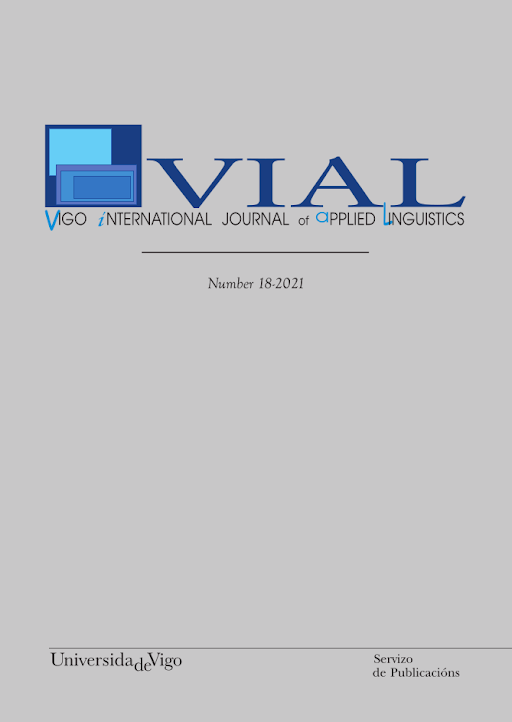Classroom enjoyment and anxiety among Saudi undergraduate EFL students: does gender matter?
DOI:
https://doi.org/10.35869/vial.v0i18.3363Keywords:
Classroom language anxiety, EFL learners, gender, foreign language enjoyment, positive psychologyAbstract
The current study was motivated by recent interest in the effect of positive and negative emotions in the context of foreign language learning resulting from the rise of the positive psychology movement (Dewaele & MacIntyre, 2016; MacIntyre & Mercer, 2014). It examines the construct of foreign language enjoyment (FLE) and its relationship with foreign language classroom anxiety (FLCA) among a group of 487 English as a foreign language (EFL) students (340 females, 147 males) enrolled in public universities in Saudi Arabia. A measure of FLE based on Likert scale ratings of ten items (Dewaele & MacIntyre, 2014), and a measure of FLCA based on eight items extracted from the FLCAS (Horwitz et al., 1986) were used. Male and female students had the same levels of FLE and FLCA. Correlation analysis showed that the relationship between students’ FLE and FLCA was significantly negative. Qualitative analysis of the participants’ learning experiences revealed the causes of FLCA and FLE among Saudi EFL learners.
Downloads
Downloads
Published
Issue
Section
License
Revistas_UVigo es el portal de publicación en acceso abierto de las revistas de la Universidade de Vigo. La puesta a disposición y comunicación pública de las obras en el portal se efectúa bajo licencias Creative Commons (CC).
Para cuestiones de responsabilidades, propiedad intelectual y protección de datos consulte el aviso legal de la Universidade de Vigo.



